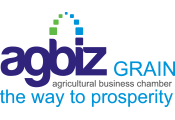
Articles & Insights
Agricultural resilience can ensure food security

The drought has laid bare the extraordinary resilience of our producers. Despite grappling with the harsh realities of climate change, these unsung heroes continue to toil, ensuring our country remains food secure. Their unwavering commitment is a testament to their courage and determination.
The farming industry is characterised by a unique mix of natural risks and economic pressures. Some of the biggest challenges producers face are the ever-rising cost of inputs, the need for insurance, and the heavy burden of debt. They also face a unique challenge, namely being price takers and not price makers. This means they have little control over the market prices for their products.
Rising input costs, such as for fuel and fertiliser, also lead to shrinking profit margins. The drought has exacerbated this problem, with many producers forced to sell their products at a loss just to stay afloat.
I have heard many stories of how producers in Mpumalanga, Northeastern Free State, and Northern Cape came together to pray for relief, encouraged each other not to give up, and shared valuable advice to overcome this difficult time. The drought has once again highlighted the need for co-operation and innovation to address the challenges of climate change.
Removing market barriers
As the Department of Agriculture, we must find innovative ways to support these vital contributors to our economy. In 2025 and beyond, the department will continue to prioritise improving on expanding existing markets and opening new markets for our products in countries where rapid urbanisation and rising incomes are fuelling demand for imported food products.
In recent months, we have met with various commodity organisations to identify potential new markets as well as blockages and red tape that hamper the industry from functioning optimally.
Closer to home, we need to mine the full potential of the African Continental Free Trade Area by finding solutions to overcome logistical challenges, non-tariff barriers, and sanitary and phytosanitary issues. We all know with public-private partnerships, we can move faster to ensure much needed investment in infrastructure, such as ports and cold storage facilities.
The road to G20
On 1 December last year, we became the first country on the continent to assume the G20 presidency. This is a huge opportunity to highlight and drive much needed awareness of food insecurity, and mobilise global commitment to reduce hunger and food insecurity.
We must work on targeted policies, partnerships, and investment to support inclusive market participation and empower the youth, women, and persons with disabilities to aid in efforts to promote rural development, reduce systemic inequalities, and foster inclusive economic growth.
Click here to read full article by Minister John Steenhuisen for Agbiz Grain Quarterly – February 2025 issue.
